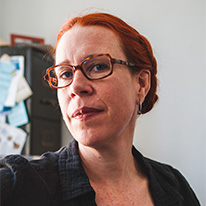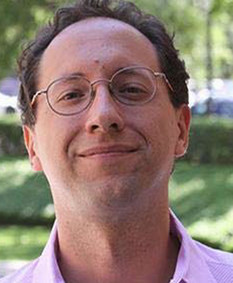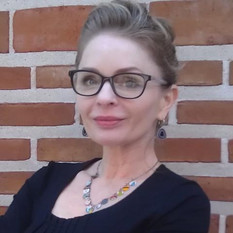Main Content
How to address the big questions? International workshop discusses research perspectives on social and ecologic transformations
The former research department "Institutional Change and Regional Public Goods" research department examines fundamental socio-ecological transformation processes. It seeks to produce in-depth analyses to make sense of the complex societal challenges we face today. But that is easier said than done. Should we apply a bird's eye perspective to study broad causal relationships? Or instead zoom in and focus on individual cases and what makes them unique? On January 27, 2020, renowned scholars Gretchen Bakke, Dominic Boyer and Cymene Howe attended a departmental workshop to discuss these and other questions.
The IRS endeavours to find answers to the pressing societal questions of our times. This is why the former research department "Institutional Change and Regional Public Goods" examines how Germany can successfully see though its "Energiewende," or energy transition. Similarly, the department studies what cities can do to adapt to climate change, and whether it is possible to transition into a post-growth society. Scholars largely take a qualitative approach meaning they hope to derive key insights by conducting in-depth studies of urban and regional transformation strategies, for example. They prefer this to analysing structures and systems on the macro-level, as such studies tend to entail problematic assumptions and generalisations. The question, however, arises as to whether case studies allow us to draw conclusions regarding the big questions of our times.
At the end of January 2020, almost the entire department debated these questions with three internationally renowned guests who shared important new insights. Gretchen Bakke, Dominic Boyer and Cymene Howe, all three anthropologists, have not only researched socio-ecologic transformations, but also explored new ways of communicating science.

Gretchen Bakke is a Guest Professor at the Integrative Research Institute on Transformations of Human-Environment Systems (IRI THESys) at Humboldt University of Berlin. Her ethnographic study "The Grid: The Fraying Wires between Americans and our Energy Future", published in 2016, was written for the general public.

Dominic Boyer is the director of the Center for Energy and Environmental Research in the Human Sciences at Rice University, Houston (USA).

Cymene Howe is Associate Professor at Rice University. Together with Boyer, she analysed conflicts that emerged over wind power development in Mexico's Isthmus of Tehuantepec. In 2019, they published their findings in two separate books focusing on different angles: "Ecologics: Wind and Power in the Anthropocene" (Boyer), and "Energopolitics: Wind and Power in the Anthropocene" (Howe). Howe and Boyer also launched an initiative to place a commemorative plaque on Okjökull, an Icelandic glacier that has melted away due to global warming and has now been declared dead. Additionally, they produced a documentary about the glacier titled "Not OK. A Little Movie About a Small Glacier at the End of the World" (see link).
During the departmental workshop, Bakke, Howe and Boyer gave insights into how they work. They also discussed the potentials and limits of applying an ethnographic (i.e. immersive, observational and participatory) perspective to this socio-ecological crisis and concomitant societal challenges. The researchers then referred to an on-going social science project which drew inspiration from natural scientific research on the causality between melting Greenland ice and rising sea levels in South Africa. This, in turn, led workshop participants to reflect on the potentials of engaging in different forms of cooperation, including above and beyond the world of academia.
Ludger Gailing and Timmo Krüger then each held short presentations on their respective post-doctoral research projects. Following Gailing's input on energy spaces and Krüger's talk on post-growth transformations, a discussion emerged over how to identify "emblematic" cases particularly suited for generating insights on societal transformations.

